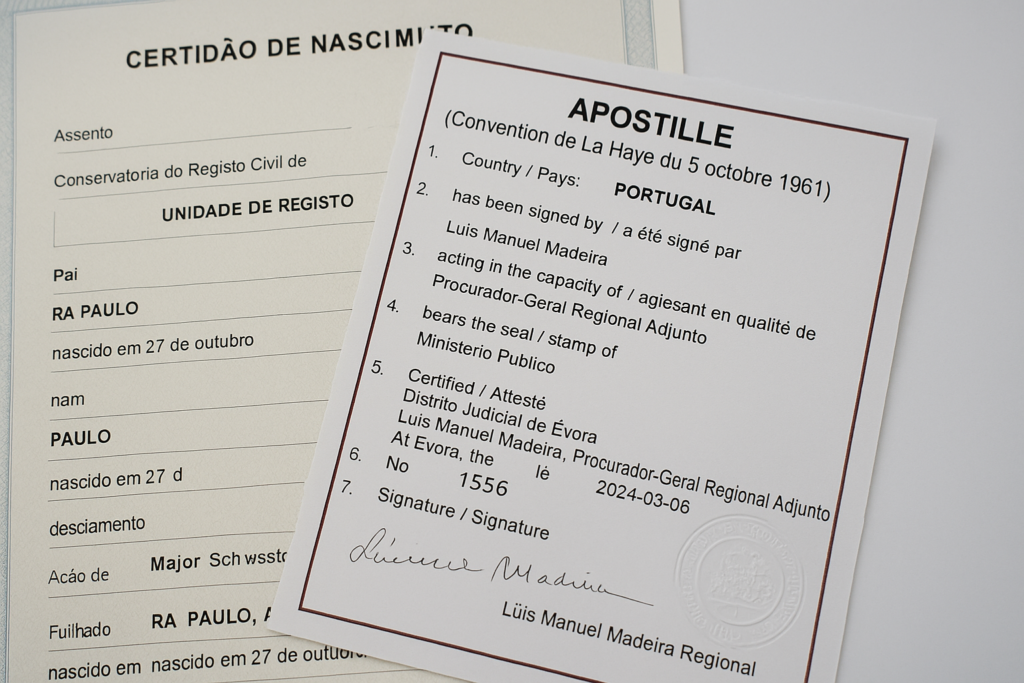The Hague apostille is a certificate issued by a competent authority of a country that is part of the Hague Convention of 5 October 1961. It authenticates the origin of a public document, making it legally valid in another member country. This process, called apostille, simplifies the legalization of public documents for international use, replacing the traditional consular route.
How is the Hague apostille done in Portugal?
In Portugal, the Hague apostille is issued by the Regional Prosecutors General of the Public Prosecutor’s Office. The process begins with obtaining the document from the issuing entity and ends with the apostille being affixed.
Example 1: Apostille of birth, marriage or death certificates
These certificates are issued by the Instituto dos Registos e do Notariado (IRN). Once issued, the applicant must go to one of the Regional Prosecutors General Offices (e.g., Lisbon or Porto), where the Hague apostille is attached to the document.
GET YOUR DOCUMENTS APOSTILLED WITH US
Example 2: Apostille of criminal record certificates
The criminal record certificate is issued by the criminal identification services of the Directorate-General for the Administration of Justice (DGAJ) and includes an access code for online verification. The document must then be taken to a Regional Prosecutor General Office for apostille, confirming its origin for international recognition.
Once apostilled, the criminal record certificate is valid in all countries under the Hague apostille convention.
What is the Hague apostille used for?
The apostille allows public documents to be recognized in other countries without consular or embassy legalization. It streamlines legal, administrative, academic, and professional procedures abroad.
Common apostilled documents:
-
Birth certificates: for nationality, residence, or marriage abroad;
-
Marriage certificates: for family reunification or registration;
-
Death certificates: in inheritance or pension matters;
-
Criminal record certificates: required for visas, work, or residency.
Can a document be apostilled in a different country?
No. A document must be apostilled in the same country where it was issued. A Portuguese certificate, for example, must be apostilled by Portuguese authorities. The same rule applies globally.
Why must each country issue its own apostille?
The Hague apostille certifies the authenticity of the signature, role of the signatory, and official seal. Only the country that issued the document has the authority to verify and certify these elements.
Did the apostille replace consular legalization?
Yes. In countries that are signatories of the Hague Convention, the Hague apostille replaces consular or diplomatic legalization. Apostilled documents from Portugal are valid in countries like Brazil, France, Germany, and Spain. If the destination country is not a member, consular legalization may still be required.
Need a Hague apostille for documents from Portugal?
We provide professional apostille services in Portugal for birth, marriage, death certificates, criminal record certificates, and more. We handle the full process securely and ship apostilled documents internationally by mail.
Contact us today and simplify your apostille process with confidence and convenience.


